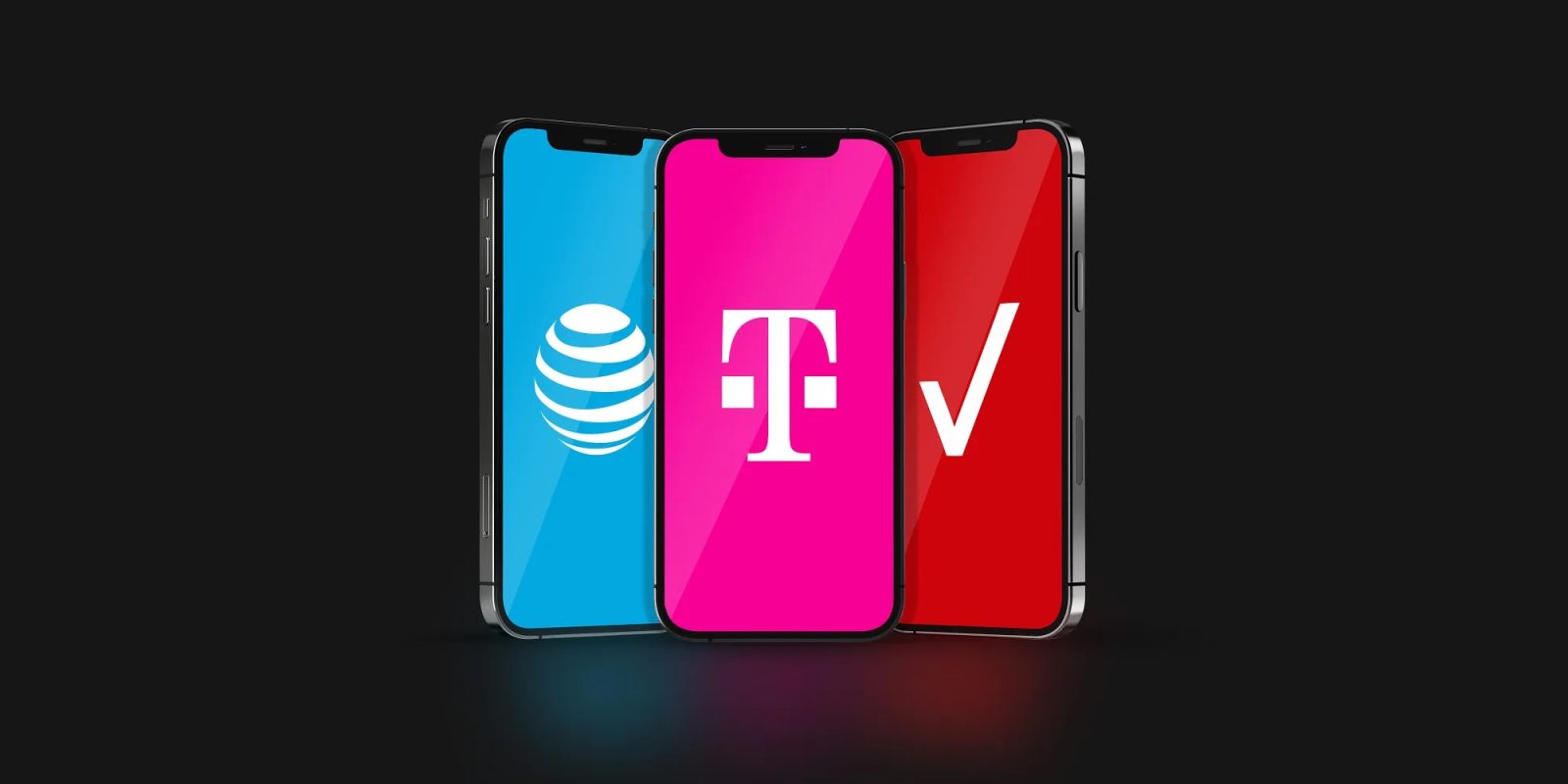
Want to check out your options for phone carriers? Market competition is strong which means compelling offers for those who switch. Read along for a look at the best phone carriers in the US. We’ll cover Verizon vs T-Mobile vs AT&T as well as some of the best affordable iPhone plans from smaller carriers. This guide will also detail how to find real-world coverage maps, how to test a carrier for free instantly with eSIM, the latest performance results from independent studies, and more.
Update April 2023: We’ve included the results from Ookla‘s latest test in the “speed” section below.
We’ve also got a dedicated comparison for business plans:
Read on for all the details on consumer plans…
Best phone carriers: Verizon vs T-Mobile vs AT&T plus budget plans
Free instant eSIM trials
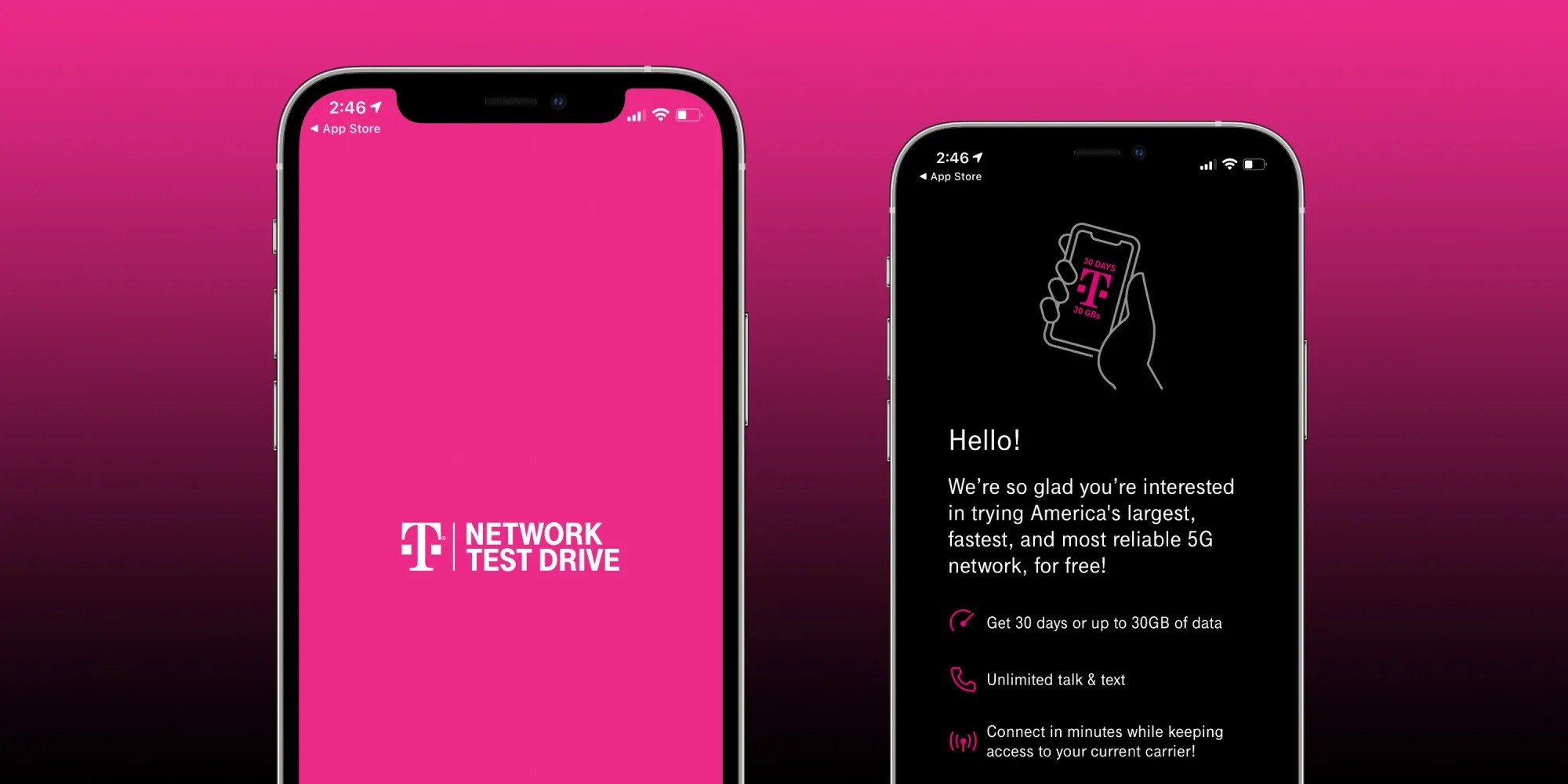
While it’s been a hassle to actually try out a new carrier in the past, eSIM support on iPhone and other smartphones has opened a new opportunity for carriers.
T-Mobile, Verizon, and AT&T are taking advantage of the tech which offers potential customers the ability to instantly test out their networks for free right alongside their existing carrier.
One of the best things with eSIM trials is you can see the signal for both your current carrier and the one you’re testing simultaneously. And you can even decide to keep using your existing carrier and number for phone calls while using the trial for cellular data.
Coverage
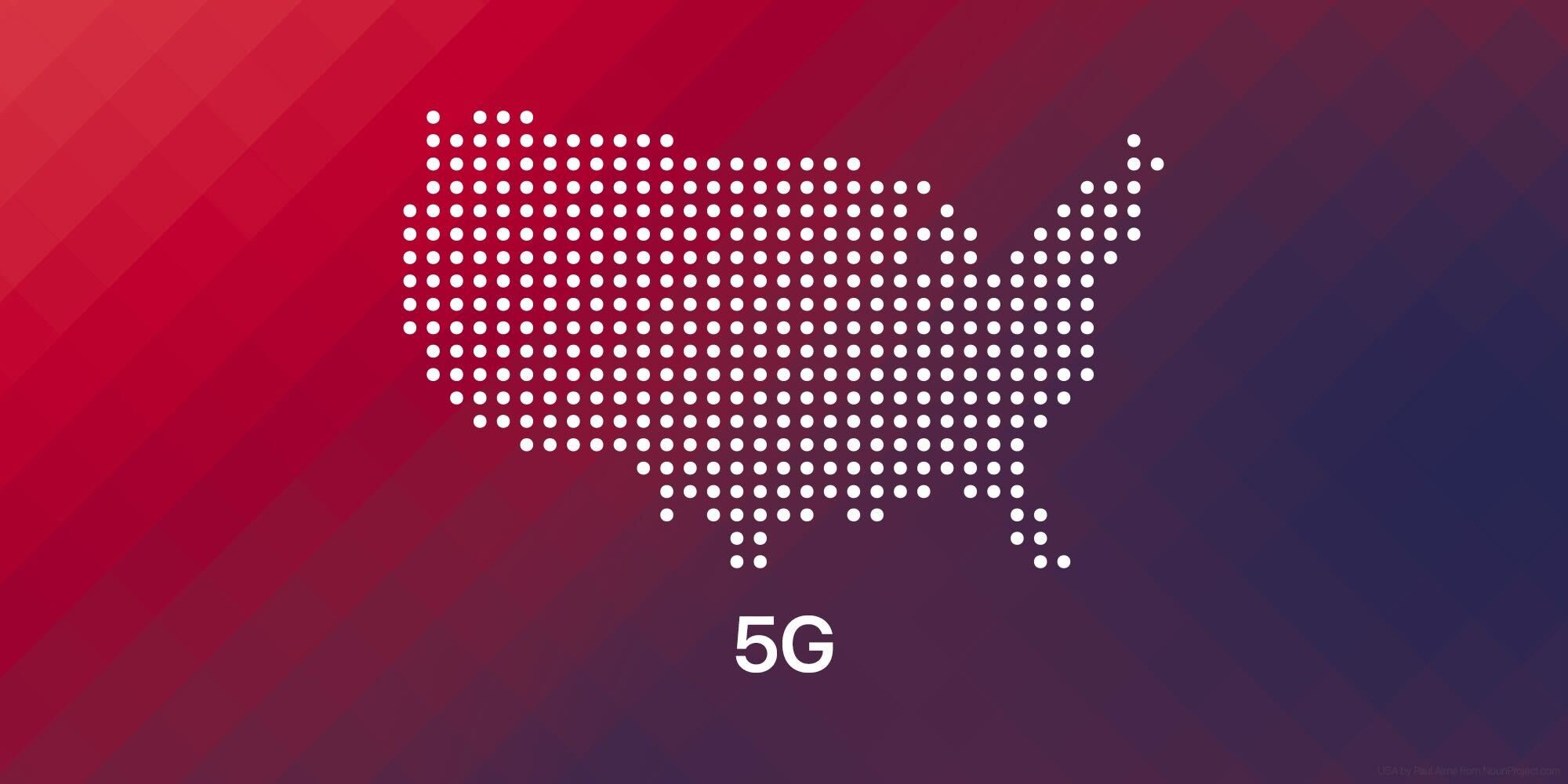
While Verizon has led the best phone carriers as far as having the most customers (and still is) along with the broadest coverage over the last decade, T-Mobile has gained a lot of ground with its Sprint acquisition and quick 5G deployment over the last few years. That has meant Verizon and AT&T are both playing a bit of catch-up with T-Mobile on 5G coverage as they work on rolling out more mid-band spectrum.
However, Verizon has built up its 5G UWB coverage to 200 million people as of March 2023.
TL;DR
All of the major carriers’ coverage maps will probably look great on their websites, here are a few tips to actually figure out how coverage will really be:
- Do a free eSIM trial to test out the coverage
- Check coverage with the independent, third-party Opensignal app
- Opensignal gets real-world data from millions of devices and billions of measurements
- Do a quick comparison of 4G/5G coverage with Signalchecker for your area
- Talk with friends, family, or people at work who use the carrier you’re considering
Remember, smaller carriers (MVNOs) lease access to networks from the major three US carriers. While you usually get the same performance, there may be data caps and throttling during times of congestion.
Speed
Like coverage, a carrier’s speed will depend on a variety of factors including your location, device, signal strength, network congestion, and more.
And if you live in a major city vs a small town, speeds can be very different. Verizon typically leads with the fastest 1,000+ Mbps speeds if you have 5G UWB coverage, but T-Mobile has greater availability at the moment with its more moderately fast mid-band 5G. However, T-Mobile is bringing its Ultra Capacity 5G Standalone service to more cities that can offer speeds up to 3,000 Mbps.
Here’s a look at how the three major carriers compare for average US speeds in recent studies from Ookla and Opensignal:
TL;DR
- Verizon often has the fastest top speeds if/where you have 5G UWB coverage
- T-Mobile has the fastest average 5G speeds with more mid-band coverage
Here’s what Ookla found in its Q1 2023 study:
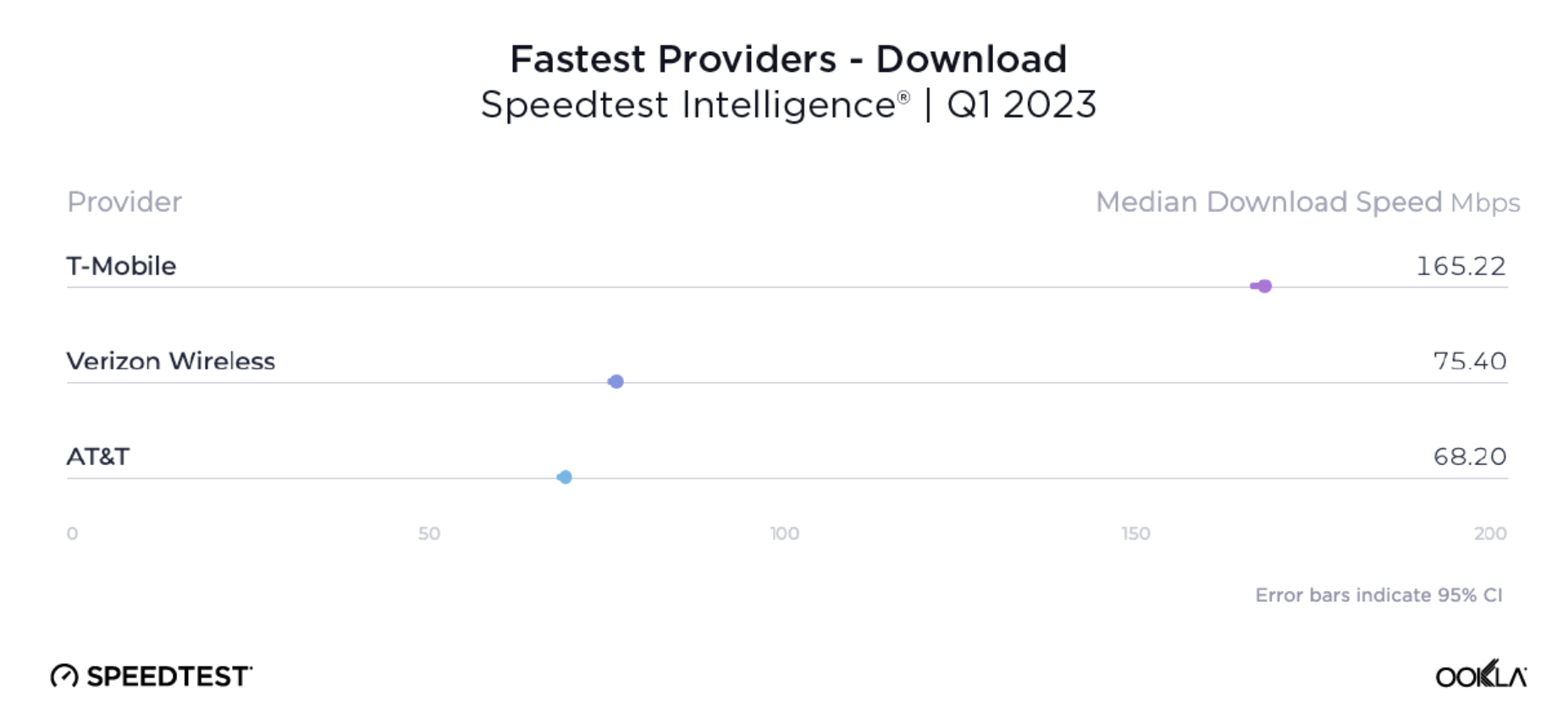
And Opensignal’s results show average 5G download speeds just a bit higher for each carrier in the US as of Q4 2022.
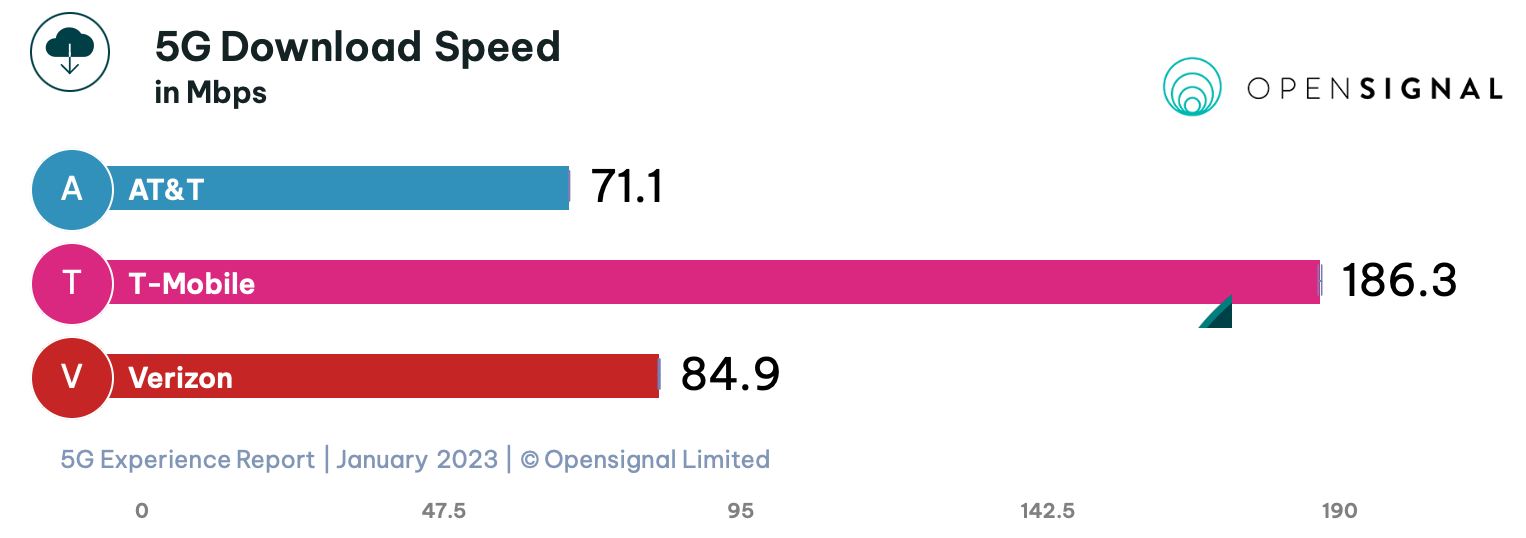
Best phone carriers: Price
T-Mobile touts it offers around 20% lower prices for its unlimited plans compared to AT&T and Verizon. T-Mobile also includes taxes and fees in its advertised prices.
Keep in mind these prices can change based on how many lines you need.
| Price | AT&T | T-Mobile | Verizon |
| Basic unlimited | $35/per phone with autopay and 4 lines | $25/per phone with autopay and 4 lines | $25-30/per phone with autopay and 4 lines |
| Upgraded unlimited | $40/per phone with autopay and 4 lines | $35/per phone with autopay and 4 lines | $31-41/per phone with autopay and 4 lines |
| Premium unlimited | $50/per phone with autopay and 4 lines | $42.50/per phone with autopay and 4 lines | $41-55/per phone with autopay and 4 lines |
In contrast, T-Mobile Connect, Mint Mobile, and Consumer Cellular offer pricing as low as $10-20 per line.
Incentives and deals
All of the major phone carriers offer (at the time of writing) up to $1,000 for a trade-in when buying a new device. But T-Mobile is the most aggressive with up to $650 for early termination fees or covering a current device balance.
The major carriers also include a streaming video service for free with some unlimited plans. And Verizon offers more than just the Disney+ bundle. Depending on the unlimited plan you can get additional perks like Apple Music, Apple Arcade, or even the Apple One bundle.
Meanwhile, the Uncarrier does “T-Mobile Tuesdays” to give out regular perks and savings to customers.
Both Verizon and T-Mobile give up to 50% off 5G home internet for their cellular customers.
Best affordable alternatives to major carriers
If cutting the cost of your phone bill is a top priority, check out our full guide on the best affordable iPhone plans.
We go over which of the major networks each provider uses, key features, and more with plans starting from just $10 a line.
Best phone carriers wrap-up
It’s difficult to pick a single winner when it comes to the best phone carriers. What’s most important to you will decide that, likely between coverage in your location, price, incentives to switch, and how many lines you have.
But hopefully, now you’ve got clarity on how the major carriers compare, how to independently check network coverage, and start a hassle-free trial. Thanks for reading our guide on the best phone carriers!
FTC: We use income earning auto affiliate links. More.





